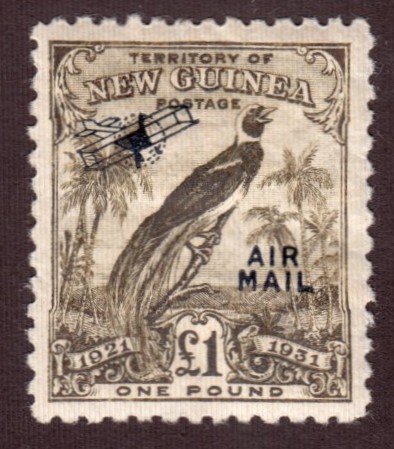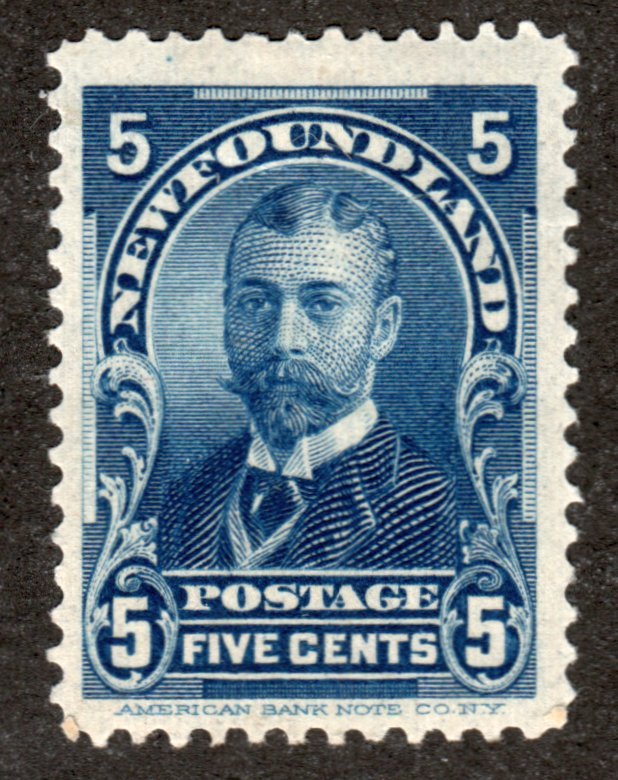
Discussion - Member to Member Sales - Research Center

Discussion - Member to Member Sales - Research Center





Ces photos proviennent de la compagnie aérienne suisse. Il a affiché le plaisir de voyager pendant les années 1960. Swiss Air 1962.

Sao Manoarii
Club des timbres de la Polynésie française

3 Members
like this post.
Login to Like.
There is little doubt that the stamp depicts the Boeing 707, which first flew on December 20, 1957 and was introduced to service in October, 1958, with Pan Am.
Air France was one of the initial operators.
-Paul

1 Member
likes this post.
Login to Like.
Pigdoc (Paul). Thanks for the info. I barely know Pan AM. I guess wasn't born in that era, other wise I would love to see Boeing 707.
(Photo below) Has anyone noticed customer service has declined over decades ?

First Class & Business Class are needed to acquired that 1950's excellence.
Avoid Economy Class, but many are still flying economy. They get treated like 3rd class, then they complained all day long. Assaults, complaints & threats are on the rise every year..... Solution: Eliminate Economy Class.

Rogelio Lee
French Polynesia Stamp Club

1 Member
likes this post.
Login to Like.
Il s'agit d'un timbre de 1973 dédié à l'avion DC 10. Il fait ses débuts en 1973. C'est l'un de mes timbres préférés même s'il n'est pas très populaire auprès des collectionneurs de timbres. J'aime juste l'histoire de ce beau timbre. C'est incroyable de voir comment l'aviation s'est tant améliorée au cours des dernières décennies.

Ce timbre n'est que de 20F, très faible valeur ce qui est courant en 1973. Notre club de timbres possède ce timbre en feuillet et épreuve. C'était cher mais il était nécessaire d'acheter à des fins de musée.

Hokulea Taumata
Club des timbres de la Polynésie française

Login to Like
this post
When I visited Hawaii in 1984, I rode on a DC-10! UPS is still using them to fly freight. When I was in Ontario, California in 2019, I drove past the airport every day, and I would seem them parked. Here's a capture from googlemaps (map data copyrighted 2022), outside the UPS warehouse at that airport:
The big engine at the base of the fin identifies the plane as a DC-10.
I don't know if or when they were decertified for passengers, but economics may have forced the issue. If you think about it, carrying freight probably has a much higher margin per loaded mile than carrying people.
-Paul

1 Member
likes this post.
Login to Like.
That aircraft is an MD11. UPS didn't have DC10s in their fleet.

1 Member
likes this post.
Login to Like.
I stand corrected.
From wikipedia:
"The McDonnell Douglas MD-11 is an American tri-jet wide-body airliner manufactured by American McDonnell Douglas (MDC) and later by Boeing. Following DC-10 development studies, the MD-11 program was launched on December 30, 1986. Assembly of the first prototype began on March 9, 1988. It rolled out in September 1989 and made its maiden flight on January 10, 1990. FAA certification was achieved on November 8. The first delivery was to Finnair on December 7, 1990, and it entered service on December 20.
It retains the basic trijet configuration of the DC-10 with updated GE CF6-80C2 or PW4000 turbofan engines. It has a slightly wider wing with winglets, and its MTOW was increased by 14% to 630,500 lb (286 t). Its fuselage is stretched by 11% to 202 ft (61.6 m) to accommodate 298 passengers in three classes over a range of up to 7,130 nmi (13,200 km). It features a glass cockpit that eliminates the need for a flight engineer. The MD-11 failed to meet its range and fuel burn targets. The last of 200 aircraft was built in October 2000 after Boeing merged with MDC in 1997. Some MD-11 freighters were built, but many more are converted MD-11 passenger aircraft, many of which are still in service with cargo airlines."
Eh, birds of a feather...
-Paul

2 Members
like this post.
Login to Like.
Oh Pigdoc! And I thought could trust your aircraft identifying skills. Apparently not! But I'll admit that I believed you were correct! Show me an airliner of the 1930s through the 1950s and I can probably identify it. But jetliners? They all have wings that aren't straight, right? And none of them have propellers! How can they even get off the ground?
OK, silliness over. I flew on a DC-10 once and hated it. The silly plane flew with a nose-up attitude all the way from Vancouver to Toronto. I felt like I was going downhill just going to the washroom, and then had to climb all the way back to my seat, which was in the centre section. I think there were 28 people sitting in the same row, about 7,000 passenger in total.
Jets do have their advantages. In the Navy, I flew from California to Japan in an old Constellation. Twenty-six hours in the air, requiring stops for fuel in Hawaii and Wake Island. Returning the States a couple of years later involved maybe 11 hours, non-stop.
Bob

1 Member
likes this post.
Login to Like.
One key feature is the little winglets at tip of the wings on the MD-11. The MD-11 did a lot of cargo duty.

Login to Like
this post

Les voyages dans les années 1960 étaient les meilleurs. Les compagnies aériennes ont un excellent service et laissent la liberté aux passagers. Ce timbre a été publié en 1960 dédié à l'aéroport international de Faaa. Une étape importante pour l'avionique polynésienne.




Ces photos proviennent de la compagnie aérienne suisse. Il a affiché le plaisir de voyager pendant les années 1960. Swiss Air 1962.

Sao Manoarii
Club des timbres de la Polynésie française

3 Members
like this post.
Login to Like.
06:58:11pm
re: Avionique des années 1960
There is little doubt that the stamp depicts the Boeing 707, which first flew on December 20, 1957 and was introduced to service in October, 1958, with Pan Am.
Air France was one of the initial operators.
-Paul

1 Member
likes this post.
Login to Like.

re: Avionique des années 1960
Pigdoc (Paul). Thanks for the info. I barely know Pan AM. I guess wasn't born in that era, other wise I would love to see Boeing 707.
(Photo below) Has anyone noticed customer service has declined over decades ?

First Class & Business Class are needed to acquired that 1950's excellence.
Avoid Economy Class, but many are still flying economy. They get treated like 3rd class, then they complained all day long. Assaults, complaints & threats are on the rise every year..... Solution: Eliminate Economy Class.

Rogelio Lee
French Polynesia Stamp Club

1 Member
likes this post.
Login to Like.

re: Avionique des années 1960
Il s'agit d'un timbre de 1973 dédié à l'avion DC 10. Il fait ses débuts en 1973. C'est l'un de mes timbres préférés même s'il n'est pas très populaire auprès des collectionneurs de timbres. J'aime juste l'histoire de ce beau timbre. C'est incroyable de voir comment l'aviation s'est tant améliorée au cours des dernières décennies.

Ce timbre n'est que de 20F, très faible valeur ce qui est courant en 1973. Notre club de timbres possède ce timbre en feuillet et épreuve. C'était cher mais il était nécessaire d'acheter à des fins de musée.

Hokulea Taumata
Club des timbres de la Polynésie française

Login to Like
this post
01:52:01pm
re: Avionique des années 1960
When I visited Hawaii in 1984, I rode on a DC-10! UPS is still using them to fly freight. When I was in Ontario, California in 2019, I drove past the airport every day, and I would seem them parked. Here's a capture from googlemaps (map data copyrighted 2022), outside the UPS warehouse at that airport:
The big engine at the base of the fin identifies the plane as a DC-10.
I don't know if or when they were decertified for passengers, but economics may have forced the issue. If you think about it, carrying freight probably has a much higher margin per loaded mile than carrying people.
-Paul

1 Member
likes this post.
Login to Like.

re: Avionique des années 1960
That aircraft is an MD11. UPS didn't have DC10s in their fleet.

1 Member
likes this post.
Login to Like.
05:53:39pm
re: Avionique des années 1960
I stand corrected.
From wikipedia:
"The McDonnell Douglas MD-11 is an American tri-jet wide-body airliner manufactured by American McDonnell Douglas (MDC) and later by Boeing. Following DC-10 development studies, the MD-11 program was launched on December 30, 1986. Assembly of the first prototype began on March 9, 1988. It rolled out in September 1989 and made its maiden flight on January 10, 1990. FAA certification was achieved on November 8. The first delivery was to Finnair on December 7, 1990, and it entered service on December 20.
It retains the basic trijet configuration of the DC-10 with updated GE CF6-80C2 or PW4000 turbofan engines. It has a slightly wider wing with winglets, and its MTOW was increased by 14% to 630,500 lb (286 t). Its fuselage is stretched by 11% to 202 ft (61.6 m) to accommodate 298 passengers in three classes over a range of up to 7,130 nmi (13,200 km). It features a glass cockpit that eliminates the need for a flight engineer. The MD-11 failed to meet its range and fuel burn targets. The last of 200 aircraft was built in October 2000 after Boeing merged with MDC in 1997. Some MD-11 freighters were built, but many more are converted MD-11 passenger aircraft, many of which are still in service with cargo airlines."
Eh, birds of a feather...
-Paul

2 Members
like this post.
Login to Like.

re: Avionique des années 1960
Oh Pigdoc! And I thought could trust your aircraft identifying skills. Apparently not! But I'll admit that I believed you were correct! Show me an airliner of the 1930s through the 1950s and I can probably identify it. But jetliners? They all have wings that aren't straight, right? And none of them have propellers! How can they even get off the ground?
OK, silliness over. I flew on a DC-10 once and hated it. The silly plane flew with a nose-up attitude all the way from Vancouver to Toronto. I felt like I was going downhill just going to the washroom, and then had to climb all the way back to my seat, which was in the centre section. I think there were 28 people sitting in the same row, about 7,000 passenger in total.
Jets do have their advantages. In the Navy, I flew from California to Japan in an old Constellation. Twenty-six hours in the air, requiring stops for fuel in Hawaii and Wake Island. Returning the States a couple of years later involved maybe 11 hours, non-stop.
Bob

1 Member
likes this post.
Login to Like.

re: Avionique des années 1960
One key feature is the little winglets at tip of the wings on the MD-11. The MD-11 did a lot of cargo duty.

Login to Like
this post

